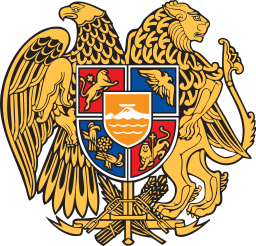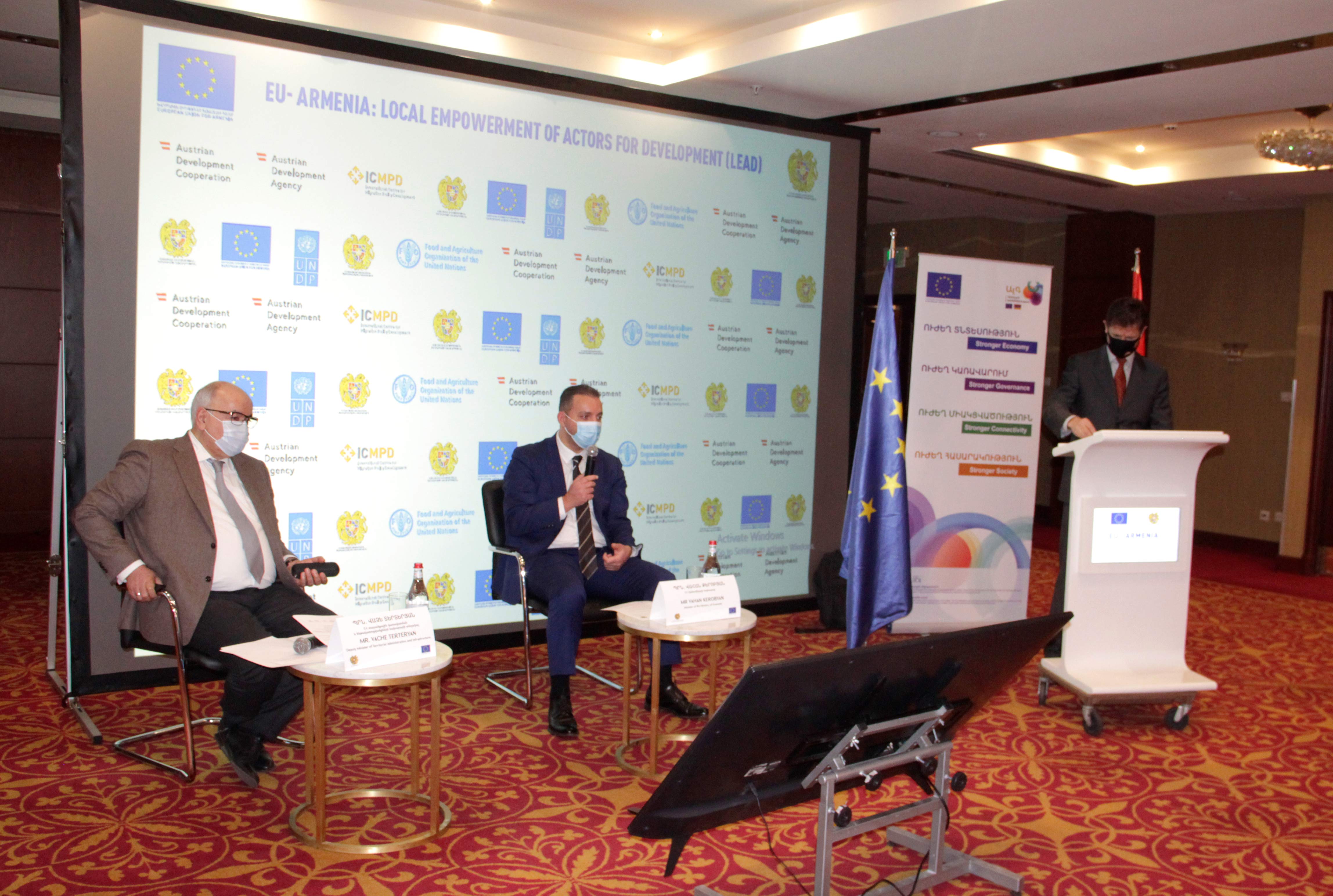Local Empowerment of Actors for Development (LEAD) Programme launched
Today, Ambassador Andrea Wiktorin, the Head of the European Union Delegation to Armenia, Vahan Kerobyan, the Minister of Economy of Armenia and Vache Terteryan, the Deputy Minister of Territorial Administration and Infrastructure of Armenia launched the EU-funded Local Empowerment of Actors for Development (LEAD) Programme. The action’s implementing partners are the United Nations Development Programme (UNDP), the Food and Agriculture Organization of the United Nations (FAO), the Austrian Development Agency (ADA) and the International Centre for Migration Policy Development (ICMPD).
Through an interactive presentation the project partners introduced the goals of the LEAD Programme, namely, to promote inclusive and sustainable socio-economic development resulting in improved quality of life in the communities in the three Northern regions of Armenia. The action’s outcomes are closely aligned with the priorities of the EU-Armenia Comprehensive and Enhanced Partnership Agreement (CEPA).
“We are announcing the launch of the LEAD programme just as the EU-Armenia Comprehensive and Enhanced Partnership Agreement (CEPA) entered into force on 1 March of this year. Regional development with a special emphasis on the development of disadvantaged areas and territorial cooperation is among the priorities of CEPA. CEPA’s entry into force is happening at challenging times for Armenia. The European Union, is committed to continue its support to Armenia to overcome the challenges and to bringing positive change in the lives of people through actions aimed at resilience building and socio-economic recovery’’ emphasised Ambassador Wiktorin, Head of the European Union Delegation to Armenia.
The 14.6 million Euro four-year LEAD programme is comprised of three projects. The LEAD4Shirak project co-financed by the Austrian Development Cooperation and implemented by ADA and the LEAD4Lori and Tavush regions project implemented by UNDP and FAO focus on adaptation and implementation of the EU LEADER methodology. This tried and tested approach identifies and supports community-driven local/rural development initiatives carried out through partnerships between local authorities, private sector and civil society.
“An important focus of our policy is to support development of rural areas of Armenia creating new opportunities for employment. We expect to see tangible change as a result of the implementation of the Programme and we are ready to contribute to that change on our side’’ mentioned Vahan Kerobyan, Minister of Economy of Armenia.
Thirdly, the EU for Increasing Migrants’ Potential to Act for Development of Armenia (EU4IMPACT) Project implemented by ICMPD focuses on empowerment of Armenian labour migrants, returnees and their family members through mobilizing remittances and investing in local development and job creation across Armenia.
“It is symbolic that the Local Empowerment of Actors for Development Programme funded by the European Union and implemented in cooperation with the Government of the Republic of Armenia is launched in as the EU-Armenia Comprehenisve and Enhanced Partnership Agreement enters into force. I am convinced that our joint efforts to implement this Programme will raise to a new level the process of applying European values in Armenia. I hope that successful implementation of this Progarmme in the three northern regions of Armenia will create good basis for adaptation of the LEAD philosophy in all regions of Armenia through our joint efforts’’, mentioned Vache Terteryan, Deputy Minister of Territorial Administration and Infrastructure of Armenia.
Expected results of the projects include the creation of more than 250 jobs; support to 160 rural businesses and funding of 150 migrant businesses; training of at least 500 beneficiaries on business management and operations. Overall, around 9000 people from the regions of Armenia will benefit from the Programme’s activities.
Over 150 representatives of national, regional and local authorities, civil society organisations, international organisations and implementing partner organisations took part in the event through a combined offline and on-line format.
BUSINESS ENVIRONMENT
(+374 11) 597 539
- BUSINESS ENVIRONMENT
- (+374 11) 597 539
TOURISM
(+374 11) 597 157
- TOURISM
- (+374 11) 597 157
QUALITY INFRASTRUCTURES
(+374 11) 597 167
- QUALITY INFRASTRUCTURES
- (+374 11) 597 167
PRODUCT LABORATORY TESTING
(+374 11) 597 166
- PRODUCT LABORATORY TESTING
- (+374 11) 597 166









